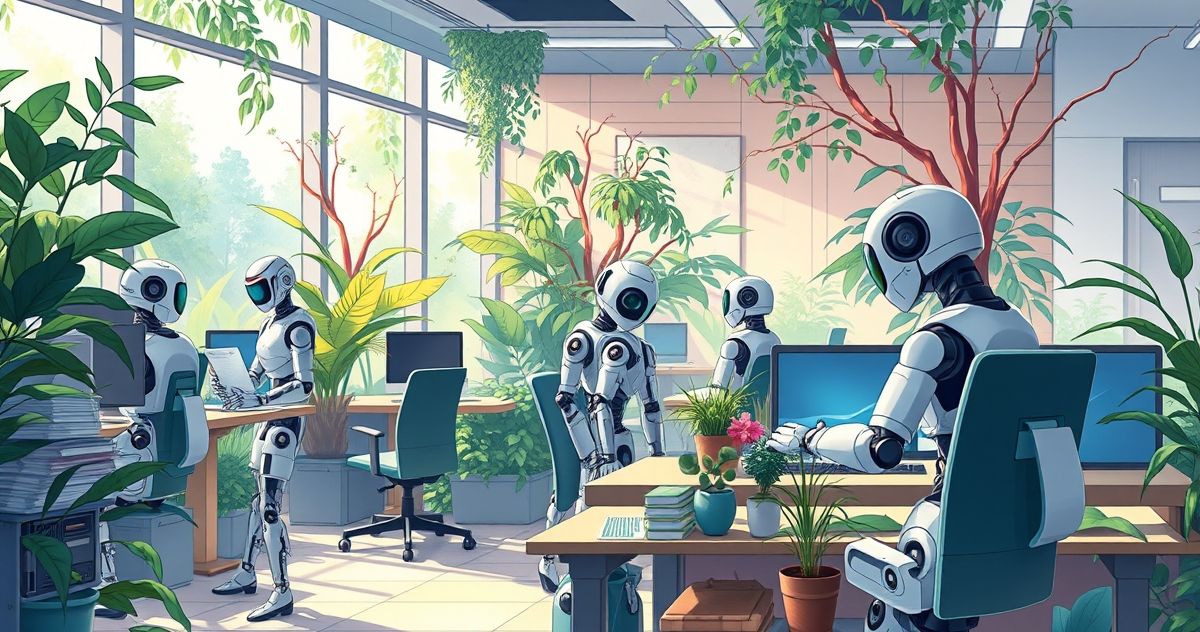
Global AI-Driven Restructuring Spreads to South Korea
Artificial intelligence technology is rapidly transforming South Korea's IT industry, bringing significant changes to the traditional job market. Following the lead of major US Big Tech companies that have already begun replacing human workers with AI, domestic Korean companies are now joining this trend, resulting in visible workforce reductions in traditional development and IT sectors.
The AI-driven restructuring that began in the United States is now spreading to South Korea. While global Big Tech giants like Meta, Google, and Amazon are leveraging AI technology to improve operational efficiency while simultaneously reducing headcount, Korean IT companies are following similar strategies.
Dramatic Changes in Software Development
The transformation is particularly pronounced in software development. Tasks that previously required human coding are now being significantly streamlined with AI assistance, leading to a reduction in required workforce size. This represents a paradigm shift that extends beyond simple task automation to affect even specialized technical positions.
LG CNS has dramatically expanded its AI coding platform beyond the coding phase where it was previously utilized. Since May, the company has been applying AI across the entire system development process, from system analysis to design, testing, and quality diagnostics. This has resulted in significantly reduced reliance on human resources throughout the development process.
Major Korean Companies Accelerate AI Adoption
Samsung Electronics and Naver are also actively adopting live coding tools like Cursor to enhance development productivity. These AI-based development tools support not only simple repetitive tasks but also complex logic implementation, bringing substantial changes to the traditional roles of developers.
The telecommunications industry is not exempt from these changes. AI is beginning to replace human tasks in various areas including customer service, network management, and data analysis. Particularly in repetitive and pattern-based work areas, AI efficiency far surpasses human capability, leading to natural workforce adjustments.
New Job Creation vs. Traditional Job Elimination
Experts analyze that AI-driven job changes cannot be viewed simply as reductions. New types of jobs for developing and managing AI systems are being created, and hybrid roles that involve collaboration between humans and AI are emerging in existing work areas.
However, these new positions require significantly higher levels of technical competency compared to traditional roles. Therefore, existing workers need substantial retraining and skill upgrades to transition to new roles.
Government and Corporate Response Strategies
The government is expanding AI workforce development and retraining programs for existing workers to respond to these changes. Minister Bae Kyung-hoon of the Ministry of Science and ICT recently visited Naver's Sejong campus, emphasizing that "infrastructure and workforce development are both essential for South Korea's leap to become one of the world's top three AI powers."
Companies are also pursuing strategies to transform existing employees into AI-era talent through capability development rather than simple workforce reduction. Major IT companies including Naver, Kakao, and Samsung SDS are strengthening internal training programs and investing in AI-related capability enhancement for their employees.
Future Job Market Outlook
AI-driven job changes have become an irreversible trend. The key is how to respond to these changes. While AI may replace simple repetitive tasks, human roles will remain important in areas requiring creativity, emotional labor, and complex decision-making.
AI literacy - the ability to effectively utilize and manage AI systems - is expected to become an essential competency for future professionals. Ultimately, individuals with the ability to collaborate with AI rather than compete against it will have competitive advantages in the future job market.
AI adoption in South Korea's IT industry has become a necessity rather than a choice. It is crucial for both companies and individuals to proactively respond to these changes and create new opportunities.
Original Korean Article: AI가 바꾼 한국 IT업계 일자리 지형도


0 Comments